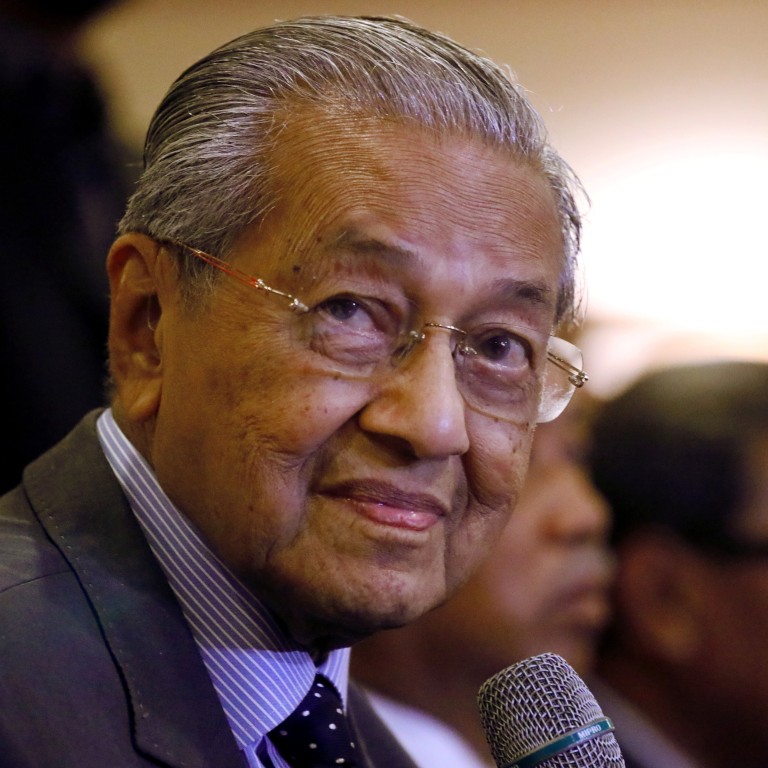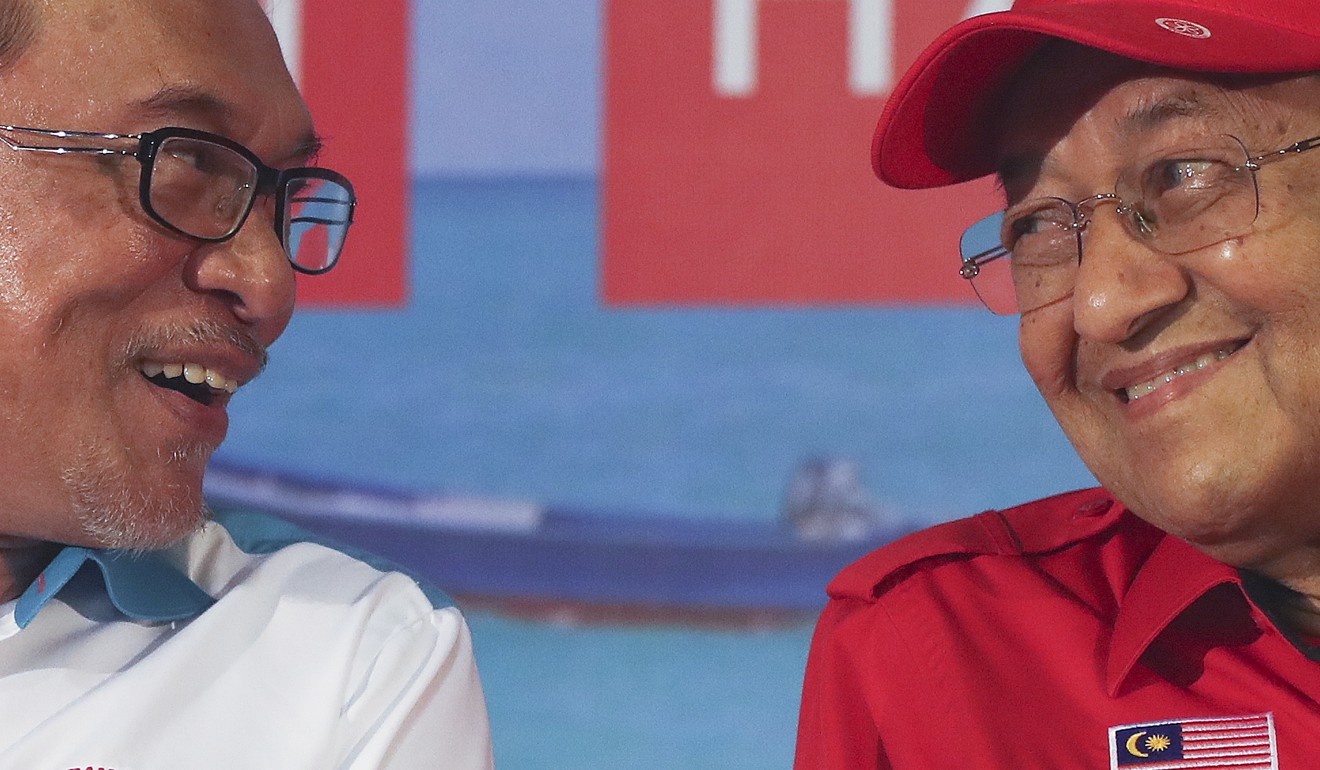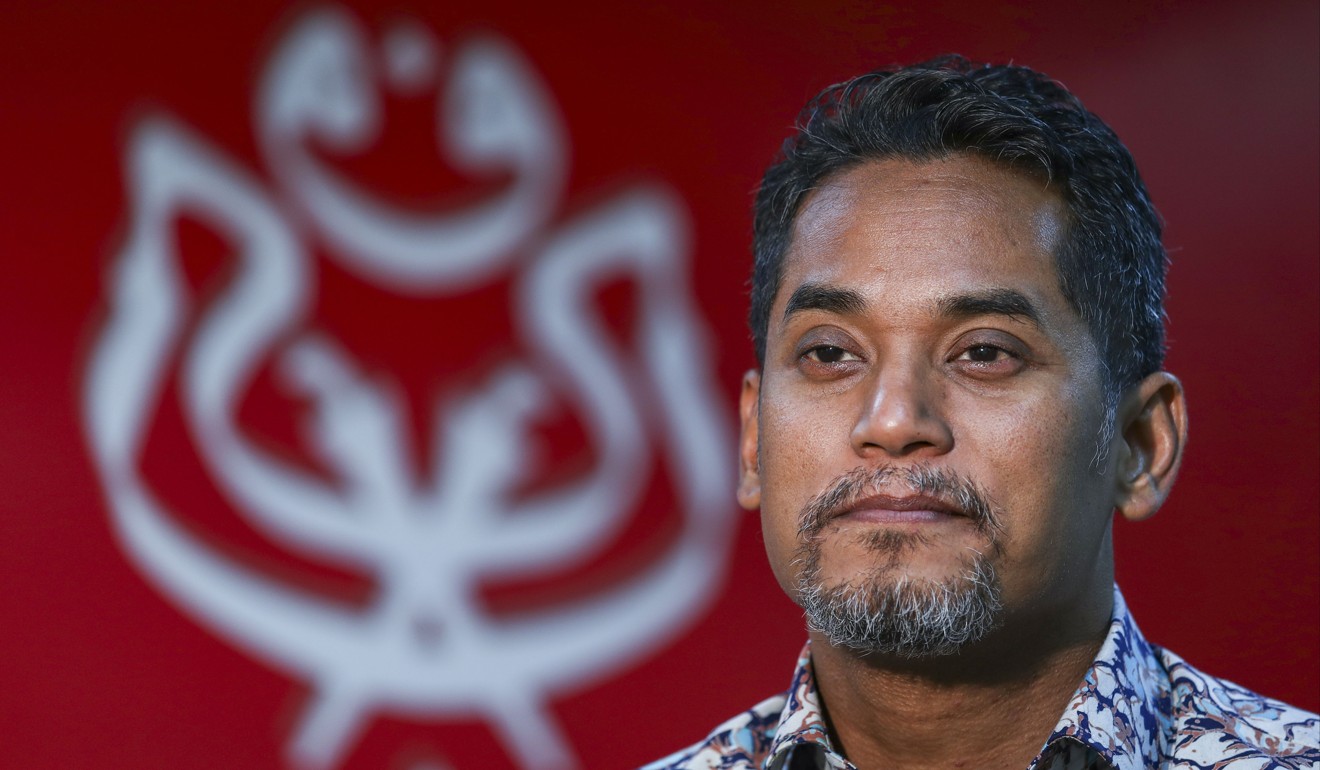
What Mahathir’s call for Malay unity means for Pakatan Harapan – and the opposition
- The Malaysian prime minister’s urging of Malays to join the party he currently leads caught opposition parties by surprise
- But it also confused his partners in government, with purported prime minister in waiting Anwar Ibrahim asking for clarification
At 94, Mahathir has a new goal: reunite Malays. But what for?
“This [invitation to join Bersatu] is not a racist sentiment,” Mahathir said. “We are just inviting members [to join]. There are already four Malay parties, enough. Malays must learn that politics is a serious matter … if there’s a problem, tell us, do not just start a new party.”
Mahathir has warned Malays against splintering, suggesting they would benefit from a common cause: “We appeal to the Malays to be sensible about politics. You have 10, or 50 parties, for what?”

His remarks caught opposition parties by surprise – but also Bersatu’s partners in government.
One year into ‘new Malaysia’, but the same old Mahathir?
This has not limited Bersatu’s ambitions: its members have been appointed to key cabinet posts and are chief ministers in the states of Johor, Kedah, and Perak.
There may however be other calculations at play, in light of the cracks appearing in PKR, which could in turn weaken the ruling Pakatan Harapan coalition.
Mahathir wades into Anwar-Azmin row in wake of sex scandal
It is too early to conclude whether Mahathir wants to boost Bersatu membership to pre-empt the party forming another coalition outside Pakatan Harapan if it collapses, or to make up the numbers in the event that PKR splits.
But his call for more Malays to join his party has served to destabilise the opposition – intentionally or not.

And not everyone within Umno is averse to the idea. Former Umno youth chief and cabinet minister Khairy Jamaluddin called on his party to think about the invitation seriously, even though he himself has pledged his loyalty to Umno. Other Umno luminaries have rejected the call, but the timing suggests that Mahathir may have sensed a split in the ranks of his former party.
Old habits of patronage die hard in ‘new Malaysia’
In Malaysia, all ethnic communities are divided politically. Yet the fluidity of the current coalitions ensure Mahathir holds the key to current and future governments.
He remains a popular figure among Malays, who see him as the only person to uphold their rights against the perceived “challenge” from the Democratic Action Party. No other Malay leader in the country can command that respect, not even Anwar. On the other hand, Mahathir is challenging Malay opponents who cast him as a “stooge” of non-Malays to address their own shortcomings first.
It is vintage Mahathir: a throwaway line designed to keep both his enemies and allies guessing about his next move.
Norshahril Saat is Fellow at ISEAS-Yusof Ishak Institute. He is the author of The State, Ulama and Islam in Malaysia and Indonesia.
